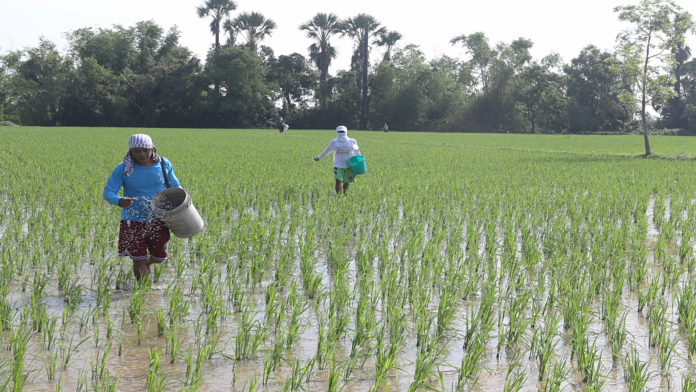Local Government Units (LGUs) and agriculture cooperatives should be allowed to buy rice directly from farmers using part of the PHP10-billion Rice Competitiveness Enhancement Fund (RCEF) or Rice Fund, Senator Imee Marcos said Wednesday.
“Para pakinabangan yung kukulektahin na buwis, ipamigay sa PhilMech (Philippine Center for Postharvest Development and Mechanization), sa PhilRice (Philippine Rice Research Institute), ibigay na rin sa LGU at coop na may kakayahan, may purchase order na sila para sa bigas (To better gain from the collected tax, give it to PhiMech, PhilRice, and even to eligible LGUs and coops, give them purchase orders for rice),” Marcos said in a news release.
“Sila na rin ang mamili para sila na ang magmi-milling at sila na ang magba-buy back mula sa ating magsasaka. Makakatulong yun ‘pag nagkasundo tayo sa isang minimum price para hindi naman luging lugi ang ating farmers (They will be the ones to buy so they can do the milling, and they will be the one to buy back from our farmers. It will help if we agree on a minimum price so that our farmers will not lose money),” she said.
The RCEF was created to improve the competitiveness of rice farmers and increase their income amid the liberalization of the local rice trade policy through rice farm mechanization; inbred rice seed development, propagation, and promotion; expanded rice credit assistance; and rice extension services.
Senator Marcos also suggested extending the Rice Fund up to 2031.
The Rice Tariffication Law (RTL) provides that the RCEF shall be in effect for six years, beginning in 2019 and ending in 2025.
Marcos also stressed the need for “all hands to be on deck” in dealing with the rice problem which, she said, is “not an ordinary emergency” and “will not be solved overnight.”
She vowed to continue to find long-term solutions with the end goal of weaning the Philippines off its dependence on rice importation.
President Ferdinand R. Marcos Jr. is currently prioritizing the amendment of RTL to lower rice prices in the country. (PNA)


